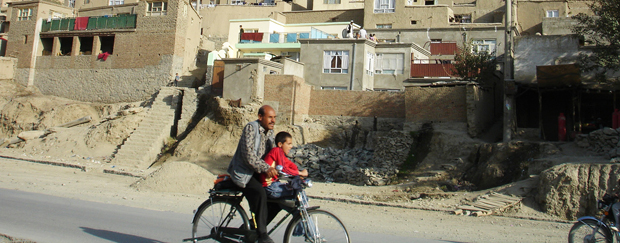Two years ago all the major donors to Afghanistan met in Tokyo to map a way forward for the war-torn country. Then president Hamid Karzai promised if the money kept coming in he would ensure it would not be lost to corruption. At the time Transparency International recommended a raft of measures aimed at curbing corruption.
The international community rallied, the aid flows continued but unfortunately, president Karzai did not follow through on his promises. Unsurprisingly, a third of Afghans still consider corruption the most challenging problem facing the country after security.
When the donors meet this week in London to discuss the next round of aid with President Ashraf Ghani, Karzai’s successor, they must insist that the new government prioritise the corruption challenge and set milestones for checking up that it does. The reason is simple: Afghanistan’s poor will remain poor if the aid the country gets for development is siphoned off before it can do any good.
But what a challenge it is. Corruption is now so endemic in the country that more than two-thirds of people don’t think it is bad for a civil servant to accept a small bribe if it gets the job done and 65 per cent believe hiring a family member for a government job is acceptable.
It’s no wonder that Afghanistan languishes at the bottom of the Transparency International Corruption Perceptions Index and is likely to remain there when the new rankings are released on 3 December.
The new government has both a practical and philosophical challenge to reduce corruption. At the moment people do not believe that the government can fight corruption so they accept that it will remain. If the government took practical, well-publicised steps to tackle it, perceptions would begin to change.
Here are six recommendations we believe the donors and the Afghan government officials need to follow immediately:
- Promote clean leadership in key institutions: In post-conflict environments such as Afghanistan, which lack the necessary regulatory environment to curb corruption, it is essential that key leadership positions are filled with strong and capable leaders with irrefutable reputations. These people must be known for their integrity and be willing to lead their respective departments through example.
- Make the judiciary independent
This requires an independent body to both vet and appoint judges. And civil society can help with this because it will not be tainted with past judicial prejudice. People need to be able to trust that when they come before a court, the judgment will not be affected by corruption. This also means paying officials adequate salaries. - Establish a best practice right to information regime
The Right to Information (RTI) Bill signed into law recently is an essential tool to fight corruption. Citizens need a good RTI regime to be able to hold their leaders to account. There are best practice frameworks that the Afghan government can use to create an enabling environment for this. - Establish an independent anti-corruption agency
If there is one, well-funded agency with the powers to investigate corruption that is independent, people will begin to believe that the corrupt will be prosecuted. This will act as a much-needed deterrent to endemic corruption. It’s worked in other countries. - Make asset declaration mandatory for all those who hold power
The constitution mandates that the president, cabinet ministers and the provincial governors should publish asset declarations. This requirement should be extended to other powerful officials. In addition to that, these declarations need to be checked and there should punitive measures for non-compliance. - Procurement transparency
Corruption risks are particularly high in public procurement so the government urgently needs a robust public procurement regulatory system. There are good frameworks already drafted, including in United Nations Convention against Corruption. Those who bid for government contracts need to be independently vetted. In addition, there needs to be both internal and external control of the auditing processes and laws in place to criminalise and penalise fraud, corruption, collusion and conflicts of interest.
















 Connect with us on Facebook
Connect with us on Facebook Follow us on Twitter
Follow us on Twitter